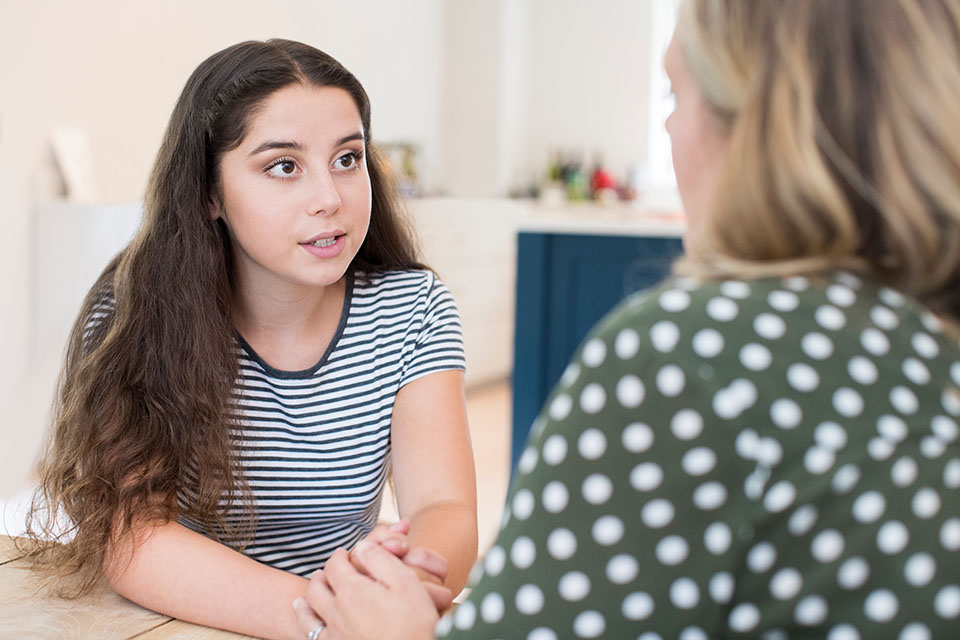By Liz Coleclough, Ph.D., Director of Counseling and Project DVORA at JFS; and Lena Neufeld, Psy.D., Teen and Young Adult Therapist at JFS.

Since day one of 2020, American youth have known a chaotic world. They’ve experienced a presidential impeachment, escalating global tensions with Iran, Australian fires destroying millions of acres of forest and wildlife, the sudden death of an NBA star (mixed with complicated history and conversations around sexual assault), and now a world-wide pandemic and potential economic crash. This has occurred all within the past three months. No, really… it’s only March.
Seattle is the named epicenter of the COVID-19 spread in the United States. The world feels eerily apocalyptic, similar to when the sun disappeared for days in 2017 because of smoke due to fires in California and British Columbia. Last week’s abrupt closure of offices, schools, libraries, community centers, sporting events, music venues / festivals, bars and restaurants collectively threatens our foundational sense of safety. There’s a desire to escape, but where do you go? Even if you leave Seattle, the spread is everywhere and escalating.
If adults are terrified, how must this land for young people? This is a time of life already marked by so much uncertainty – mentally, emotionally, socially. It’s a time when you begin to really form your identity and search for your place in the world around you. But what does that mean when this world presents as so scary, so uncertain? What do you do?

You meme. You joke. You listen to Billie Eilish. You protest. You ask adults to step up and ‘be the adult in the room.’
Parents, caregivers, educators: Our kids are smart. They are shockingly resilient. They are sharing information at a pace we can’t keep up with. But they need the adult in the room. They need a foundation of security that allows kids to be kids. They need a ground upon which they can solidly stand, and explore, and make mistakes, and figure out who they are.
Even though the information age – fueled by mainstream media looking for headlines, and social media full of confusion and disinformation – has exacerbated a global sense of anxiety for everyone, the adults in the lives of young people can help tremendously by creating local islands and pockets of calm.
- The calm to sit with all the emotions – to provide a space where young people can maintain choice, autonomy, and control over how much to open up, how much to share.
- The calm to build media literacy – to offer tools for understanding how to interpret the news, and find the balance between ignorance and overwhelm.
- The calm for honesty and openness – understanding you don’t need to know the outcome to establish a sense of security. It is vastly more important to provide trust, space, and unconditional emotional safety within our relationships than to pretend we have all the answers.
- The calm to distract – to offer moments of levity, to watch a movie or show, to play a board game.
- The calm to lean into relationships and connection – with peers, with healthy adults.
- The calm to know we aren’t alone in navigating these challenges.
It’s true that none of us hold the playbook for how this scenario will pan out. It’s true we cannot be certain about the future for our public health, our medical system, our education, our economy. But we do know young people are going to continue growing up. They are going to continue exploring their identity. They are going to continue navigating the world around them.
We can take comfort in the fact that, even in all this uncertainty, we still hold so much knowledge. We know, fundamentally, the experience of growing up and becoming an adult is shaped by access to healthy, safe, secure relationships. So, even though things feel so scary, let’s continue to show up as adults who have the skills and capacity to cultivate these relationships – as parents, caregivers, teachers, and models for how to hold on to resilience through an ever-changing world.
Supportive Links and Resources
- Teen and Young Adult Counseling options at JFS
- 5 Ways to Help Teens Manage Anxiety About the Coronavirus
- How to Talk to Kids About Coronavirus
- Let’s meet this moment together
- Talking to Teens and Tweens about Coronavirus
- CDC: Mental Health and Coping
- Child Mind Institute: Talking to Kids about Coronavirus
- The Hope Center: Supporting College Students During COVID-19
- North West School: Tips for Teens and Taking Care of Yourself During a School Shutdown
- 7 Science Based Strategies to Cope with Coronavirus Anxiety
- The News Literacy Project
- Media Literacy Now



